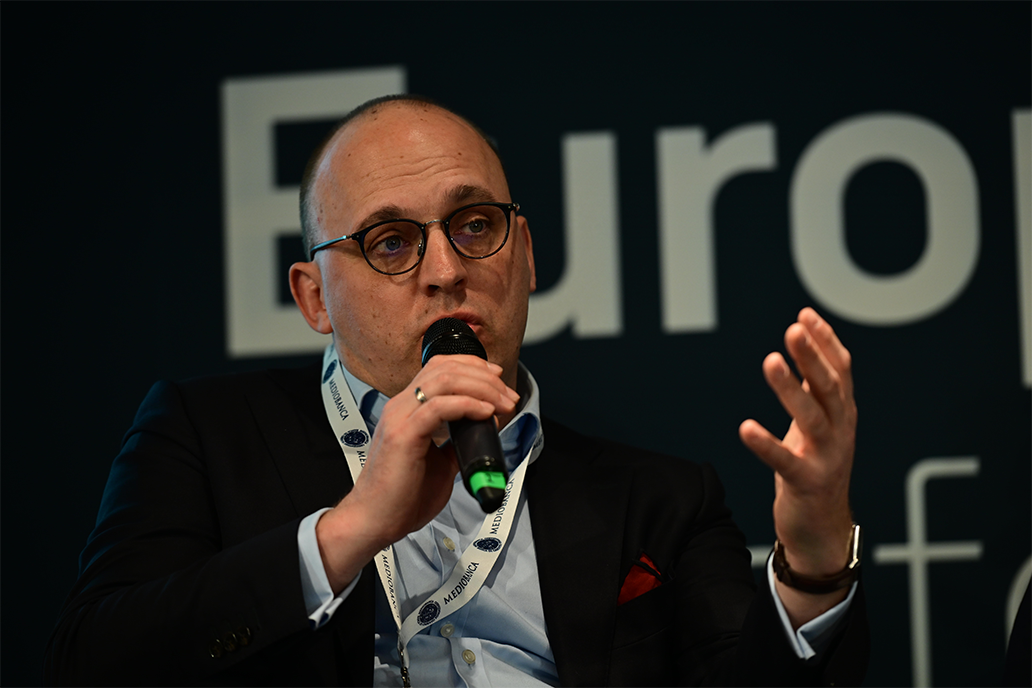Panellists shared thoughts on the latest regulatory landscape in European markets during the SRP Europe 2024 conference in London held between 18 and 20 March.
The panel discussion was kicked off by Thomas Wulf, secretary general at European Structured Investment Products Association (Eusipa), which represents 10 European structured products markets, speaking about the industry’s differing views on the EU Commission's plan to ban inducement-based sales of financial products.
On a parliamentary level, one entity, the presidency in charge of the council, finds a compromise between the member states - Thomas Wulf, Eusipa
Back in January 2023, the EU Commission’s plan to ban inducement-based sales of financial products from banks and insurance companies raised the industry’s eyebrows as several European trade associations noted they would be a ‘serious setback’ to the EU's capital markets and limit choice for consumers.
Wulf (below) observed that the EU Commission proposed a partial ban, while political groups in Parliament favour a full inducement ban. Now, with Belgium – the current rotation of the European Union presidency – coming up with a compromised proposal, “you also see on a parliamentary level, one entity, the presidency in charge of the council, finds a compromise between the member states,” he said.
“The opinion spectrum is very entrenched,” he said. “It’s something which I do not see fly, but it's something that is still subject to discussion.”
VFM framework
Embracing the value for money (VFM) level, he noted a potential way out for business via the benchmark idea to measure the cost performance ratios against which the products are scored.
“Both the council and the parliament are currently looking for an alternative to the Commission proposal that is somehow less burdened with practical issues,” Wulf said. “If you implement the provisions proposal and have this naive ambition to establish a quantitative benchmark, across asset classes and markets and jurisdictions, it's almost unfeasible.”
While agreeing with Wulf on the idea of value for money, Dario Savoia (below, centre), secretary general at Acepi, Italy’s trade body for the structured product industry, said leveraging data and surveys to monitor product costs and maintain cost controls is one of its priorities, as is "picking out barriers for cross-border banking and financial services".
Patrick Scholl, partner, head of capital markets and regulatory practice at law firm Mayer Brown, noted that using “plain language” in documentation is critical to standardisation.
“Our preferences are less regulation and more liberalisation to [help reduce] the problems of costs for documentation,” he said.
ESG standards
Looking at regional markets, in Germany, which is a mature market for structured products, the idea of ESG investing remains in focus, said Annekatrin Kutzbach (pictured), senior legal counsel at German Structured Securities Association (Bundesverband für strukturierte Wertpapiere or BSW).
She noted that taking ESG information into consideration is crucial as investors are increasingly interested in suitable investments.
Structured products are a good tool to combine with ESG investment
“Structured products are a good tool to combine with ESG investment… [ESG] transparency and comprehension are crucial, but where do we put this information?” she continued. “It needs to be inserted in prospectuses. The problem lies in the limitation of the three pages, but also, which information exactly needs to be included. [That] is very much still a debate."
Kutzbach said the German government's recent proposal wasn't being supported in recent industry discussions.
Meanwhile, in the central European market, Michał Karwasiński (below), a member of the board at the Polish Council for Structured Products, spoke about working with local legislation to establish rules and standards for how structured products can be issued and distributed in Poland.
“We're at the moment where regulation in terms of distribution of structured products is really friendly – that's probably the reason the turnover of listed structured products grew last year,” Karwasiński said.
Do you have a confidential story, tip or comment you’d like to share? Write to info@derivia.com



